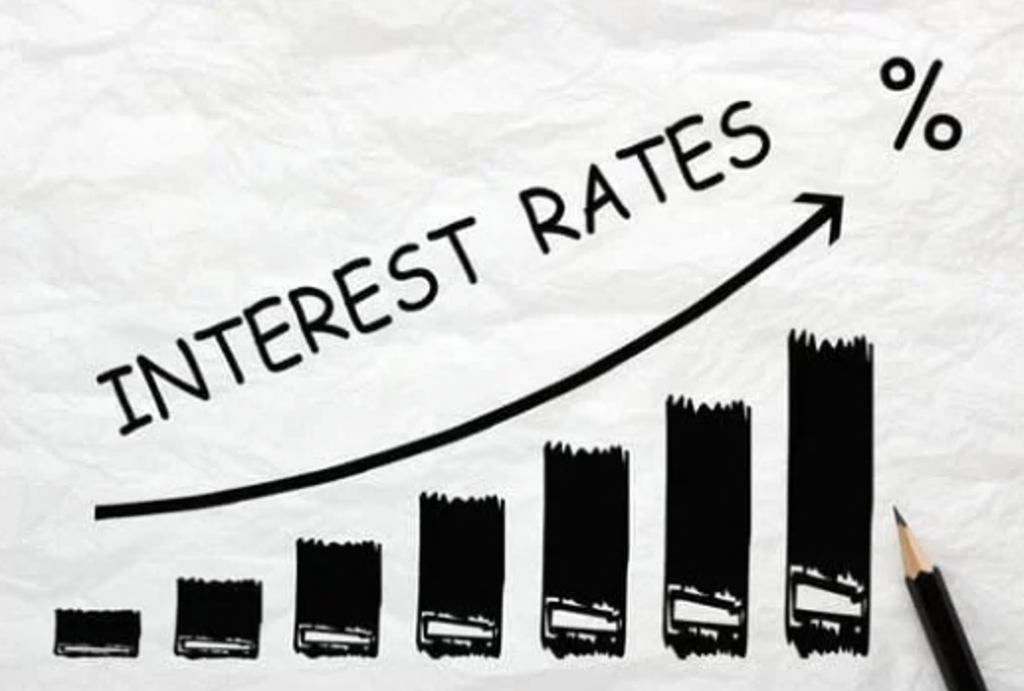Interest Rates Explained

Interest rates are a significant part of your financial life. In its simplest terms – interest is the price you pay to borrow money. At some point, most of us will find ourselves paying interest on a student loan, car loan, mortgage, or credit card. When you borrow money, you will have to pay back the amount you borrowed plus a percentage of the amount borrowed which is the interest.
Unfortunately, we have little control over the interest rates available to us as they are largely a product of economic factors such as money supply, the inflation rate, and the Bank of Canada’s monetary policy.
Factors Affecting Interest Rates
Money Supply
When more people want to borrow money than invest money (decreasing money supply) the price of borrowing (interest rate) will go up. This often leads to a cyclical reaction, as the increasing interest rate eventually encourages more people to invest causing an increase in money supply and a resultant decrease in interest rates.
Inflation
Inflation is a general increase in prices and is measured by the aggregate prices of a fixed basket of goods called the Consumer Price Index (CPI). Inflation is usually the result of a concern for prices increasing in the future such that currency value decreases resulting in lower purchasing power. This will cause lenders to charge higher interest rates on loans.
Bank of Canada
Canada’s central bank, the Bank of Canada, sets monetary policy by setting the institutional borrowing interest rate, thereby affecting the availability of money supply to institutional borrowers which accordingly affects consumer borrowing rates. The Bank of Canada rate is most often increased to combat increasing inflation.
Interest Rate Effects
Interest Rates and Equity Investments
High interest rates usually have a negative effect on corporate earnings given the increase in borrowing costs (this is especially true for growth stocks) which may cause stock prices to decrease. However, different types of stocks may react differently depending on whether they are classified as defensive stocks or growth stocks.
Interest Rates and Fixed Income Securities
Generally, interest rates and fixed-income security prices move in opposite directions. As interest rates rise, the price of most fixed-income securities decreases, and vice versa.
Interest Rates and Mortgages
Interest rate movement is most concerning to those holding variable-rate mortgages. As interest rates increase, the variable mortgage rate will increase. Therefore, more of the mortgage payment goes towards interest and less goes to paying down the principal. Your monthly payment may increase and/or your amortization period may increase, depending on the specifications of your mortgage.
Interest Rates and Savings
Savings account rates will move in the same direction as interest rates. Savings account rate increases usually only occur during periods of rising inflation. Even though you may seem to be getting a higher savings account rate your real savings rate may be the same. For example, if your savings account rate is 10% and inflation is 7%, then your real savings account rate is 3%.
High-Interest Rate vs Low-Interest Rate
A borrower that is considered low risk and/or has a favourable credit rating will typically be charged a lower interest rate than a borrower that is considered high risk and/or has a poor credit rating.
Interest rates can also be affected by whether the debt is considered bad or good. For example, a mortgage loan is considered good debt as the asset is usually appreciating in value. Car loans are considered bad debt as the asset usually begins depreciating the day you purchase it. Therefore, the interest on a home mortgage is usually lower than the interest on a car loan.
Understanding the Effect of Interest Rates on Your Investments
At Bloom Investment Counsel, Inc., for over 38 years, we have specialized in one thing, investing in income-generating investments, specifically dividend-paying stocks, which can help you generate income if needed and growth. We would be happy to work with you and/or your advisor to obtain the expertise you may need for a greater understanding of the effect of interest rates on your investments.
This content is provided for general informational purposes only and does not constitute financial, investment, tax, legal or accounting advice nor does it constitute an offer or solicitation to buy or sell any securities referred to. Individual circumstances and current events are critical to sound investment planning; anyone wishing to act on this content should consult with his or her financial partner or advisor.